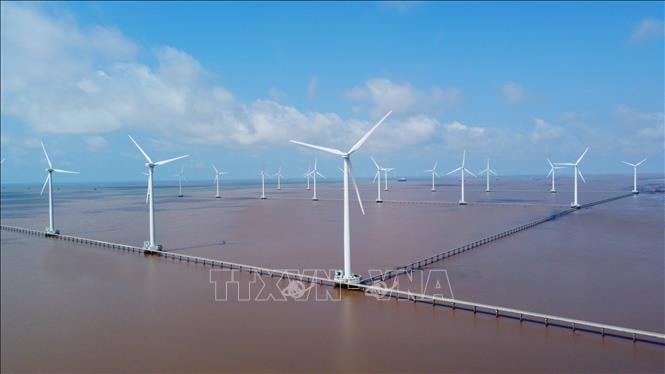
The issuance of Resolution No. 70-NQ/TW by the Politburo on ensuring national energy security until 2030, with a vision to 2045, is considered a strategic turning point, affirming the determination to quickly shift from "issuing policies" to "executing governance", ensuring a stable, green and safe energy source for the country's development in the new era.
VNA has produced a series of 4 articles "Activating new driving forces for Vietnam's energy" to clearly understand the orientation of the Politburo , the participation of sectors, levels and enterprises, thereby providing solutions and proposals from experts and managers so that Resolution No. 70-NQ/TW can quickly come into life, creating a solid foundation to ensure national energy security in the new period.
Lesson 1: From "promulgating policies" to "managing implementation"
Storms, floods, record heat waves, fluctuating global energy prices, clear warning signs of climate change and energy security pressures. For Vietnam, where economic growth requires huge energy resources, this challenge becomes even more urgent. Resolution 70-NQ/TW of the Politburo dated August 20, 2025 on ensuring national energy security until 2030, with a vision to 2045, was issued at the right time, opening up a new direction: ensuring national energy security associated with sustainable development, taking effective implementation as a measure instead of just stopping at policy.
Strategic orientation of the energy industry
At the recent National Conference on dissemination and implementation of the Resolution of the Politburo, Head of the Central Policy and Strategy Committee Nguyen Thanh Nghi said that after 5 years of implementing Resolution No. 55-NQ/TW dated February 11, 2020 of the Politburo on the orientation of Vietnam's National Energy Development Strategy to 2030, with a vision to 2045, many limitations still exist. The report by the end of 2024 shows that, of the 11 targets of Resolution 55, by 2030, only 3 targets are likely to be achieved, 6 targets are difficult to achieve and 2 targets do not have enough basis for assessment. Institutions and policies are still inadequate; planning is inflexible; many projects are behind schedule, and there is a risk of power shortage. Supply sources are increasingly dependent on imports; infrastructure is lacking and not synchronized; technology innovation is slow, and the localization rate is low. Human resources and productivity are still limited; The competitive market is not yet synchronized, energy prices are not suitable for market mechanisms, and there is still cross-subsidy in electricity prices.
"Therefore, the issuance of Resolution No. 70-NQ/TW with synchronous and breakthrough policies and guidelines to ensure national energy security to meet the country's development requirements in the new era," Mr. Nguyen Thanh Nghi stated.
The core objective of Resolution No. 70-NQ/TW is that the energy system must be safe, stable, have reliable backup; provide enough power for production and life; shift towards green, low-emissions; operate intelligently on a digital platform and ensure reasonable and transparent costs.
Resolution 70-NQ/TW sets the target that from now until 2030, the reserve capacity will be at least 15%, significantly reducing power loss; the proportion of renewable energy in the total primary energy supply will be about 25-30%; competitive and transparent electricity market mechanisms will be built with a solid roadmap; and greenhouse gas emissions from energy activities will be reduced by about 15-35% compared to the normal development scenario.
The Resolution also sets the target that oil refineries will meet at least 70% of domestic petroleum demand; petroleum reserves will reach about 90 days of net imports; facilities will develop with full capacity to import liquefied natural gas (LNG) according to the demand for LNG power sources and other needs; and energy centers will be formed to harmonize LNG gas across regions. By 2045, the goal is to achieve a sustainable, smart, competitive, modern energy system on par with the world.
Policy turning point
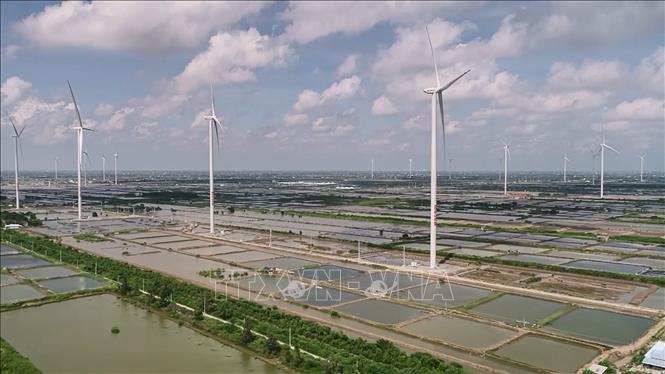
According to Dr. Nguyen Quoc Viet, policy expert, University of Economics, Vietnam National University, Hanoi, the most important breakthrough of Resolution No. 70-NQ/TW is the comprehensive opening of the energy market, not only in the generation stage but also in transmission, technical services, and even the retail electricity market. This means eliminating the cross-subsidy mechanism, forming transparent and competitive electricity prices, and no longer "hesitating" between the State's monopoly role and market demand.
Sharing this view, Dr. Ngo Duc Lam - former Deputy Director of the Institute of Energy (Ministry of Industry and Trade) said that Resolution 70-NQ/TW has brought nuclear power back to the central position in the national energy strategy, while also planning a clear roadmap, associated with institutional reform. The launch of the Ninh Thuan 1 and 2 nuclear power projects not only contributes to ensuring a stable long-term power source, but also affirms Vietnam's orientation for sustainable, modern energy development and international integration.
Pointing out the important highlights of Resolution No. 70-NQ/TW, Dr. Nguyen Quoc Thap, Chairman of the Vietnam Petroleum Association, affirmed that this Resolution has provided clear directions in terms of guiding viewpoints, goals, visions, as well as specific tasks and solutions to remove most of the "bottlenecks" in mechanisms and policies in planning, licensing, capital mobilization, etc. for energy projects. In particular, the Resolution has pointed out specific and outstanding mechanisms and policies to attract and develop large projects, such as allowing guarantees for important national projects, etc., which could not be implemented in the recent period.
Meanwhile, economic expert Ngo Tri Long emphasized that Resolution No. 70-NQ/TW has simultaneously removed three major bottlenecks regarding "legal - planning - price mechanism" for renewable energy. Specifically, the Resolution has designed a long-term, transparent and stable power purchase agreement (PPA); applied bidding, auctions, and contract for difference (CfD) mechanisms; expanded the direct power purchase agreement (DPPA) and the competitive retail market; and overcome the problem of transitional prices.
On the business side, General Director of Vietnam Electricity (EVN) Nguyen Anh Tuan affirmed that Resolution No. 70-NQ/TW is an important basis for EVN to concretize the action program; including the application of a two-component electricity price mechanism. The Resolution is a decisive step in reforming, making institutional breakthroughs, removing the "bottleneck of all bottlenecks" to quickly complete the restructuring of the electricity industry according to the competitive market roadmap.
Move quickly from policy to implementation
With the consistent spirit of quickly shifting from "issuing policies" to "managing implementation", at the National Conference to disseminate and implement the Politburo's Resolutions on September 16, General Secretary To Lam pointed out 10 key groups of solutions to implement Resolution No. 70-NQ/TW.
Specifically, balancing supply and demand by region, updating synchronous power-grid planning, finalizing a list of key projects; strongly investing in transmission and storage - especially 500kV lines, smart grid, piloting energy storage systems at bottlenecks; mobilizing diverse capital; developing a competitive electricity market according to a roadmap, standardizing the long-term reference price mechanism, and improving transparency.
In addition, diversify fuels and reserve LNG, ensure warehouse capacity, pipelines, long-term contracts, strategic coal/gas reserve; promote energy efficiency and demand management, apply time-of-use pricing, require mandatory savings at high loads; develop renewable energy according to "systems thinking". At the same time, protect vulnerable populations and ensure electricity for basic industries through targeted, time-limited support packages, transparent compensation sources; digitally transform the electricity sector; develop human resources and localization: train system engineers, supporting industries.
The solutions also identify breakthroughs in the strategy to ensure energy security, sustainable development and realize the Net Zero commitment by 2050; focusing on three points: institutional reform; facilitating the attraction of social resources, especially the private economic sector to participate in renewable energy investment, electricity transmission and distribution; and ensuring the principle that energy development must be consistent with the socialist-oriented market economic institution, associated with progress, social equity, social security, ensuring national defense, security, and environmental protection for development.
In order for the Resolution-NQ/TW to soon come into life, experts, businesses and management agencies have also contributed specific solutions. Dr. Nguyen Quoc Viet pointed out three groups of breakthrough policies to develop the energy industry and energy infrastructure, including: reforming the electricity price mechanism; in which it is necessary to apply two-component electricity prices - separating capacity prices and variable prices; having a mechanism to support capital and manage risks, especially for new energy projects such as offshore wind power, hydrogen or nuclear - which require huge investment capital and long-term risks; improving implementation; in which implementing substantial administrative reforms in the energy sector, to remove bottlenecks, creating confidence for both domestic and international investors.
"Looking long-term to 2045, the State should only play a role in creating and regulating. When the market operates, the State creates a legal framework, establishes a "fair playing field", controls risks and ensures reasonable planning. Especially, in key industries such as energy, state-owned enterprises still play a leading role," Dr. Nguyen Quoc Viet emphasized.
"Giving advice" to remove legal bottlenecks, Dr. Nguyen Quoc Thap said that the top priority in 2025 is to amend the Electricity Law and the electricity market mechanism. Accordingly, it is necessary to thoroughly realize the direct electricity trading mechanism; in which the State should only play the role of creating a legal framework and regulating by tax, while leaving it to investors in the supply chain to negotiate and decide for themselves.
According to Deputy Minister of Industry and Trade Nguyen Hoang Long, Resolution No. 70-NQ/TW is just the beginning, the biggest challenge is implementation. "We must act immediately, there is no longer the concept of progressing step by step. By 2025, problems related to policy mechanisms must be thoroughly resolved to create breakthroughs. Therefore, the Ministry of Industry and Trade requests that units under the Ministry and energy corporations proactively develop action plans, arrange work scientifically and reasonably, promote leadership skills and abilities to effectively implement the Resolution."
"With high political determination, synchronous coordination and the spirit of doing it now, the Resolution will certainly quickly come into life, creating a solid foundation to ensure national energy security in the new period," Deputy Minister Nguyen Hoang Long emphasized.
Lesson 2: Businesses ready to get involved
Source: https://baotintuc.vn/kinh-te/buoc-ngoat-chien-luoc-cho-nang-luong-viet-nam-bai-1-tu-ban-hanh-chu-truongsang-quan-tri-thuc-thi-20251014071404079.htm




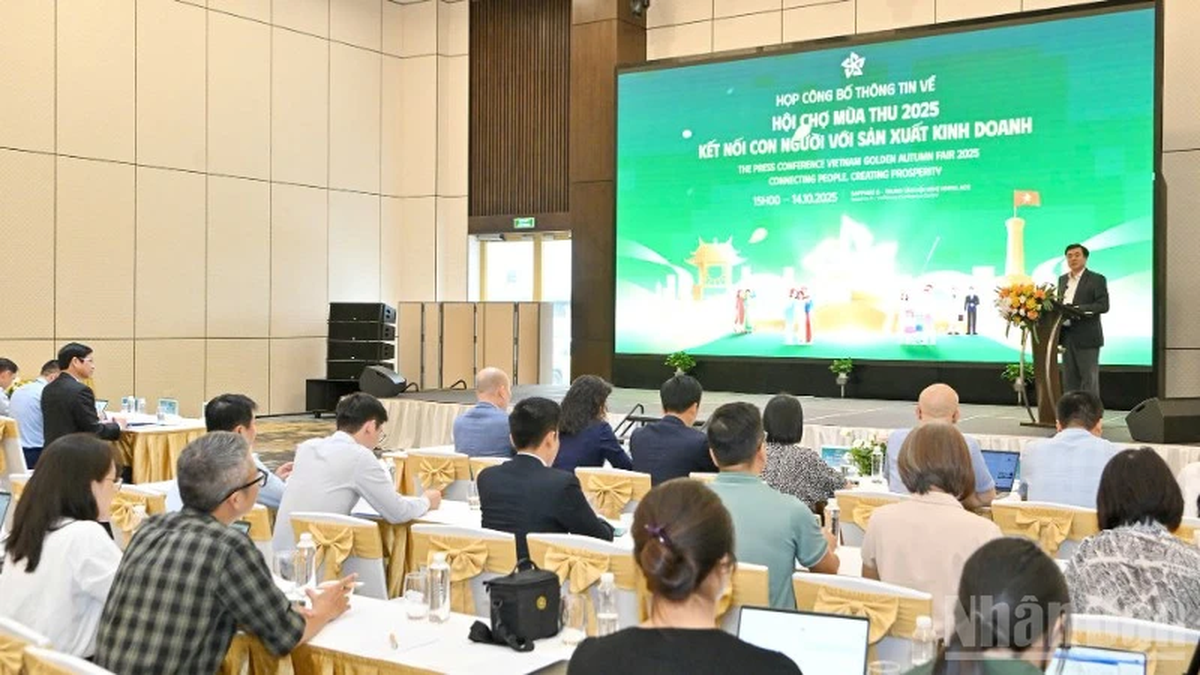

![[Photo] Ready for the 2025 Fall Fair](https://vphoto.vietnam.vn/thumb/1200x675/vietnam/resource/IMAGE/2025/10/14/1760456672454_ndo_br_chi-9796-jpg.webp)



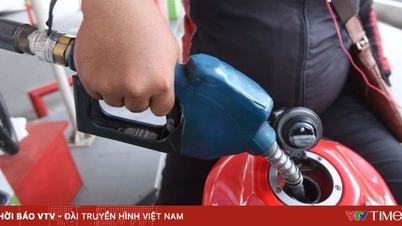





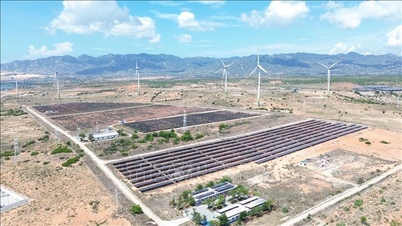

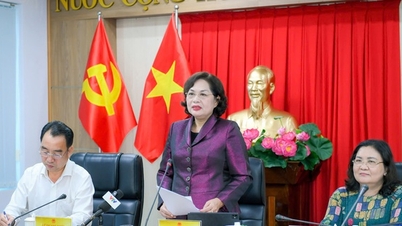

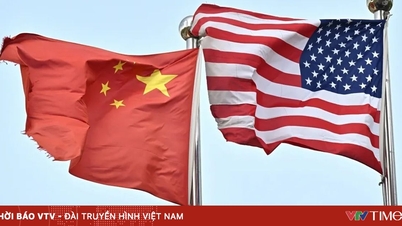

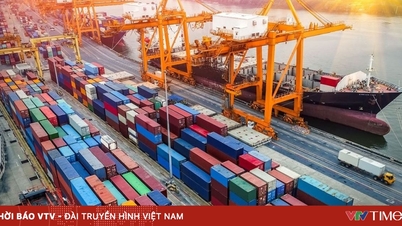
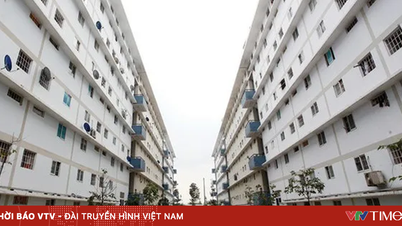




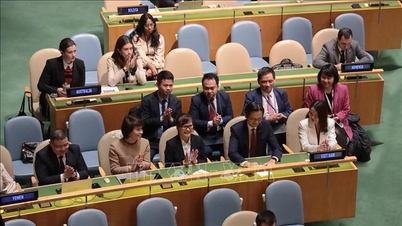
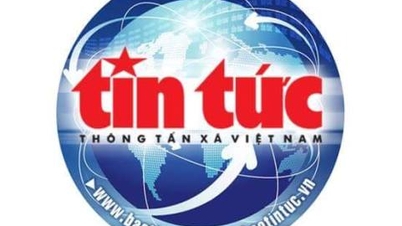
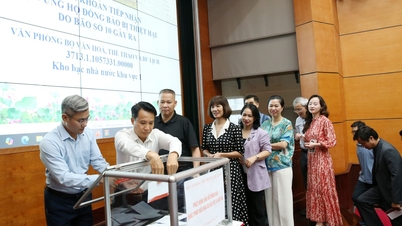

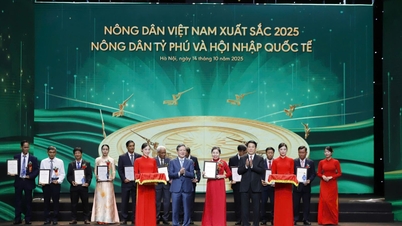
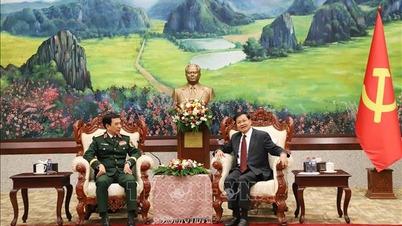
























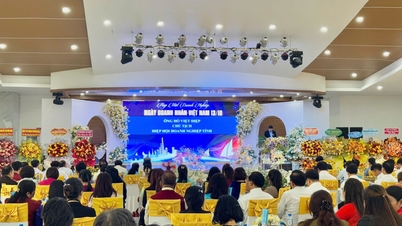
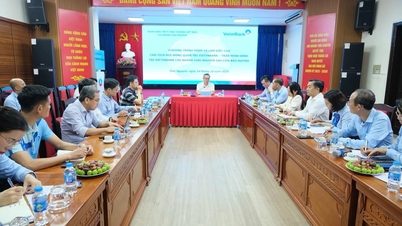











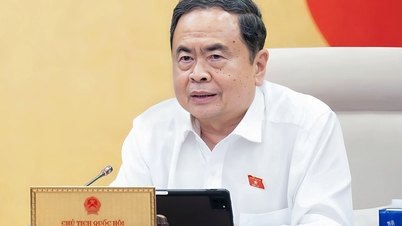
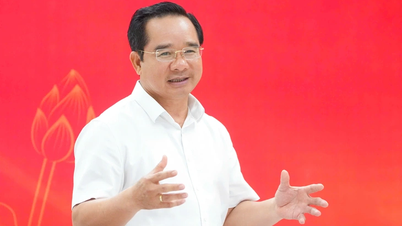


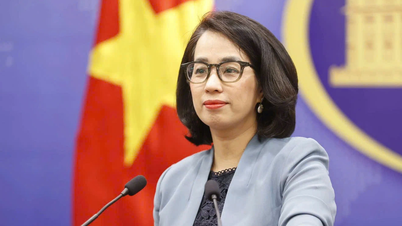

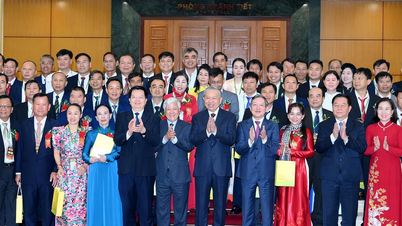
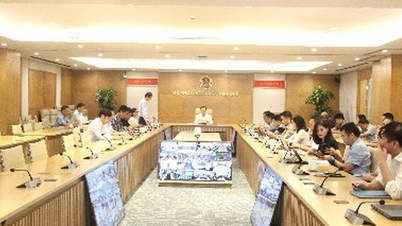
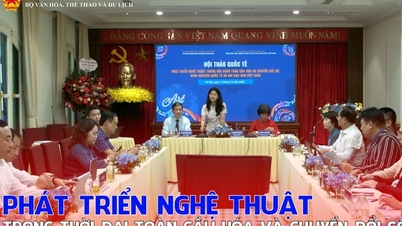


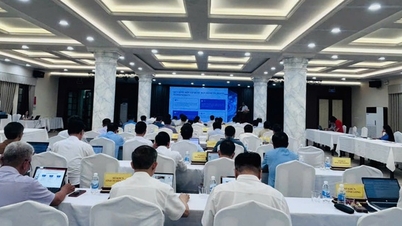


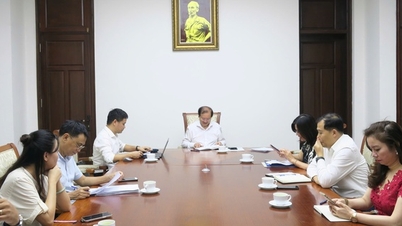


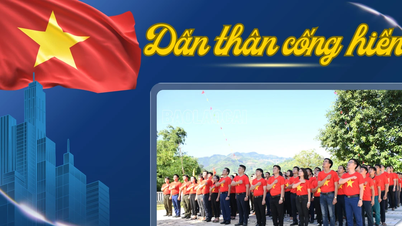

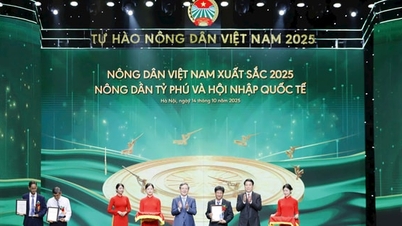



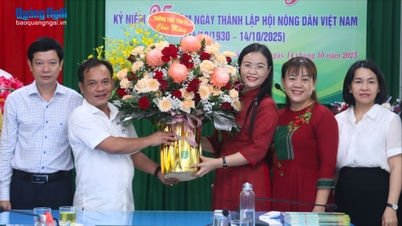
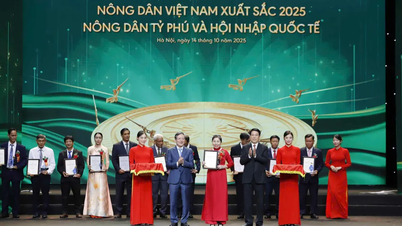














Comment (0)